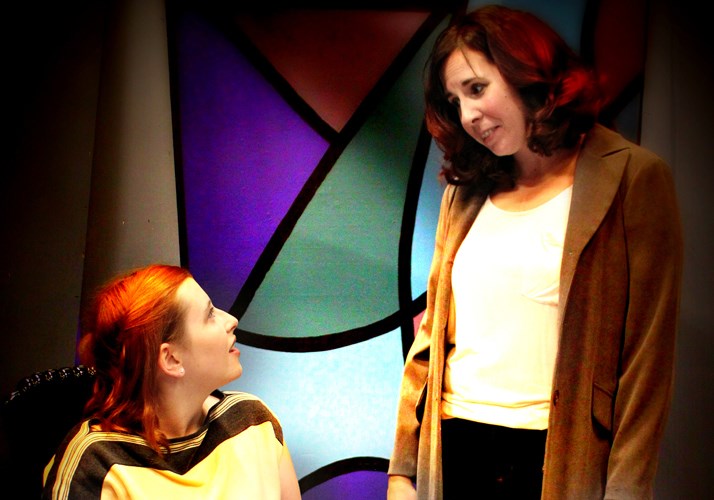PREVIEW
The Women
Feb. 7 to 17
Walterdale Theatre
10322 – 83 Ave.
Tickets: Adults $20, seniors $18, Walterdale members $15. Call 780-420-1757 or at www.tixonthesquare.ca
Fashions change however people remain remarkably similar. That is one of the themes tucked inside The Women opening tonight at Walterdale Theatre.
Written by American playwright Clare Boothe Luce, the two-act play is a comedy of manners first mounted in 1936. In the original, Luce dishes out a stinging commentary on the pampered lives and power struggles of tony Manhattan socialites and the up-and-comers struggling to fit in.
Luce uses gossip as the propulsive mechanism that damages relationships and cuts through the superficial glamour. While men are the frequent subject of lively conversations and play major roles in advancing the action, they never appear on stage.
“She was trying to say to men, ‘You think you’re the only one talking while you’re out drinking with your friends. This is what we talk about,” said director Catherine Wenschlag, a former St. Albert resident.
The plot revolves around Mary Haines (Roseanna Sargent), a socialite who inadvertently discovers her husband is cheating.
“She goes through pain, loss and discovery, and eventually makes decisions that are strong, confident and right for her,” Wenschlag said.
Write what you know is an ingrained ethic of all writers, and Clare Boothe Luce certainly had a great deal of material to draw on. She was a journalist, author, politician and the first American woman appointed to an ambassadorial position abroad.
In addition, she was the wife of Henry Luce, publisher of Time, Life, Fortune and Sports Illustrated, one of the most powerful men in pre-Second World War journalism. Together, the Luces were a couple with access to some of the most influential and formidable power brokers of that era.
Henry Luce wrote a review on The Women and described it as “an eye-opening two hours of a man’s life.”
Clare Boothe Luce wrote about New York’s upper echelon using the common language of the era. While it was true to the period, today some of that dialogue would be considered dated or racist.
A passionate feminist who found her niche directing works written and performed by women for other women, Wenschlag was initially hesitant about the play.
“This will never work today was my gut reaction. Although I laughed throughout it, the language was dated and highly offensive in some cases. If you put it on stage, it would have to be changed,” Wenschlag said.
Picking up the gauntlet, she rewrote a few of the more offensive lines without changing the context to seamlessly fit 21st century sensibilities.
Luce wrote the play with 33 characters played by an equal number of actresses. Wenschlag instead has 17 actors that are double cast with the exception of several major roles. Kate Elliot, one of St. Albert Dinner Theatre’s early driving forces is also an ensemble member in the show.
The play is strewn with characters one loves and hates. Sylvia Fowler (Nicolle Lemay) “is the social arbiter and leader. She is cold and calculating and is the first one to find out about the infidelity. She shares it with the girls and orchestrates it so everyone finds out.”
Then there’s Crystal Allen (Julie Whelan), the other woman and requisite femme fatale. Within the friend circle is Countess De Lage (Tricia Van Doornun).
“The Countess is comedic relief. She’s over-the-top. At the start of the play, she’s on her third husband and by the end of the play she’s on her fifth. She worships on the altar of love and just follows her heart.”
In addition to updating the language, Wenschlag stages this production for any era.
“The main thing the play shows is the variety of female relationships we have today. We have best friends, casual friends, work friends. We meet people in business or the service industry. More than anything this holds a mirror up to society. I see women being incredibly kind. I see women being incredibly cruel. I see them being human.”




